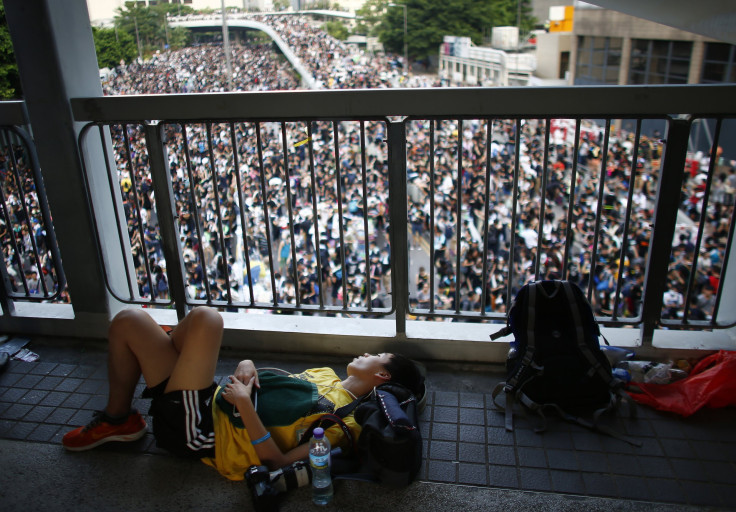Hong Kong Protests: Pro-Beijing Demonstrators Harass Journalists

As the center of gravity of Hong Kong's protests shifted to the Mong Kok area Friday night, clashes between protesters and pro-Beijing opponents caught the reporters covering the protests into the mix. Several journalists working in Mong Kok reported that pro-Beijing counterdemonstrators pushed, shoved or otherwise harassed them while in the process of doing their jobs.
Covering stand off between pro- and anti-Occupy groups in #Mongkok. Groped twice by opportunists talking advantage of the pushing & shoving.
— Judy Ngao (@Judy_Ngao) October 3, 2014This paid goon in Mong Kok hit my camera with a plastic bottle (of ice lemon tea.) #OccupyCentral #OccupyMongKok pic.twitter.com/TLujxhaOY5
— Alex Hofford (@alexhofford) October 3, 2014Anti #Occupycentral ppl confronting journalists https://t.co/YybOvcSQZp
— Tom Grundy (@tomgrundy) October 3, 2014Sumit Galhotra, a research associate at the Committee to Protect Journalists, said that in addition to reports of harassment, reporters in Hong Kong were denied access to certain locations and subject to disruptions by the police. These difficulties -- routine for journalists working in mainland China -- remain uncommon in Hong Kong, a territory that has traditionally enjoyed robust press freedom. But in recent years, these freedoms have come under threat: Censorship of news deemed sensitive to China has increased, while several reporters have been the victims of physical attacks in the last two years. Reporters Without Borders ranked Hong Kong 58th in their 2014 press freedom index, the third consecutive year Hong Kong has slid in the rankings.
"This past year has been the darkest in decades for journalists in Hong Kong," Galhotra said.
© Copyright IBTimes 2024. All rights reserved.






















